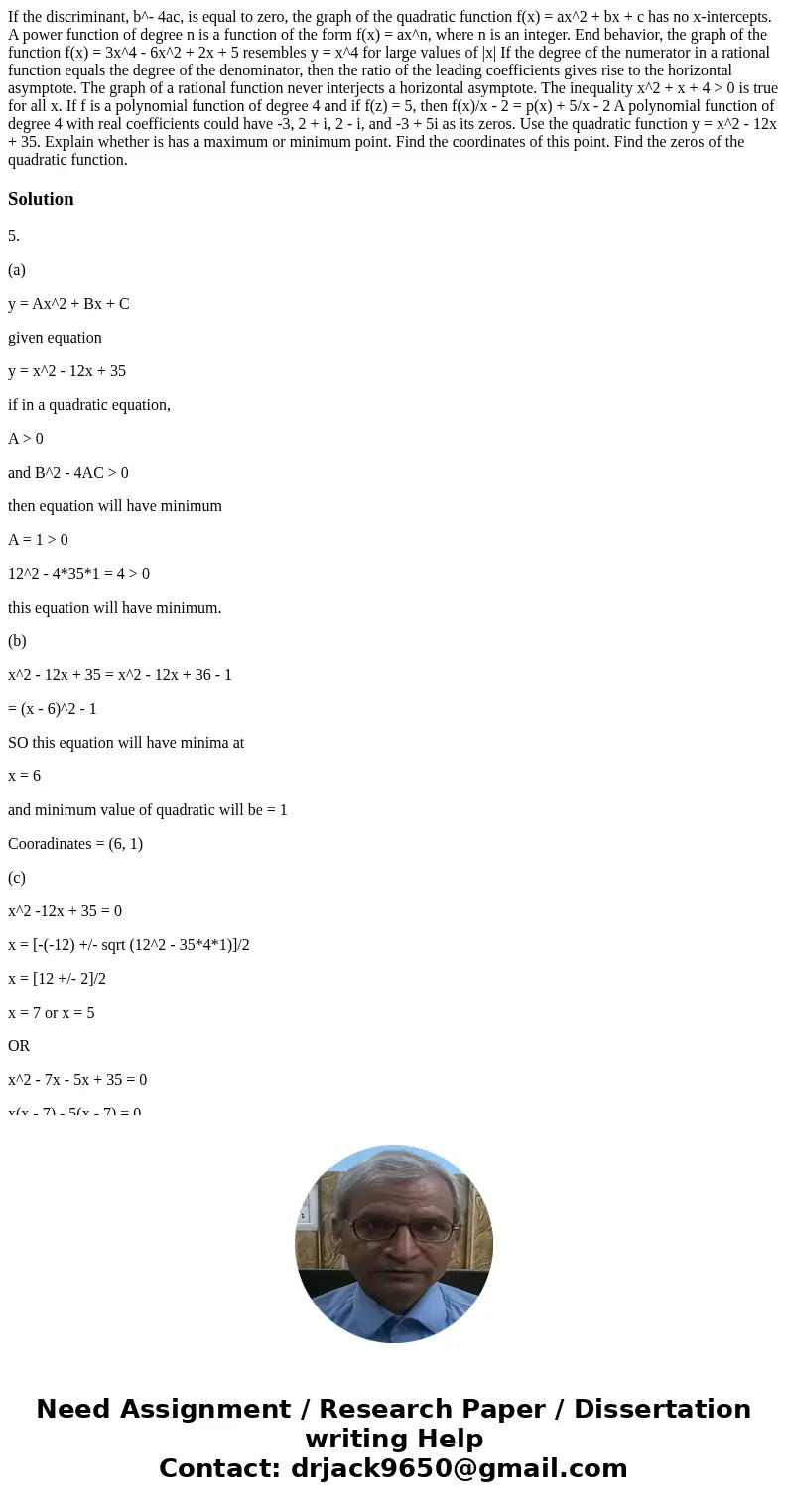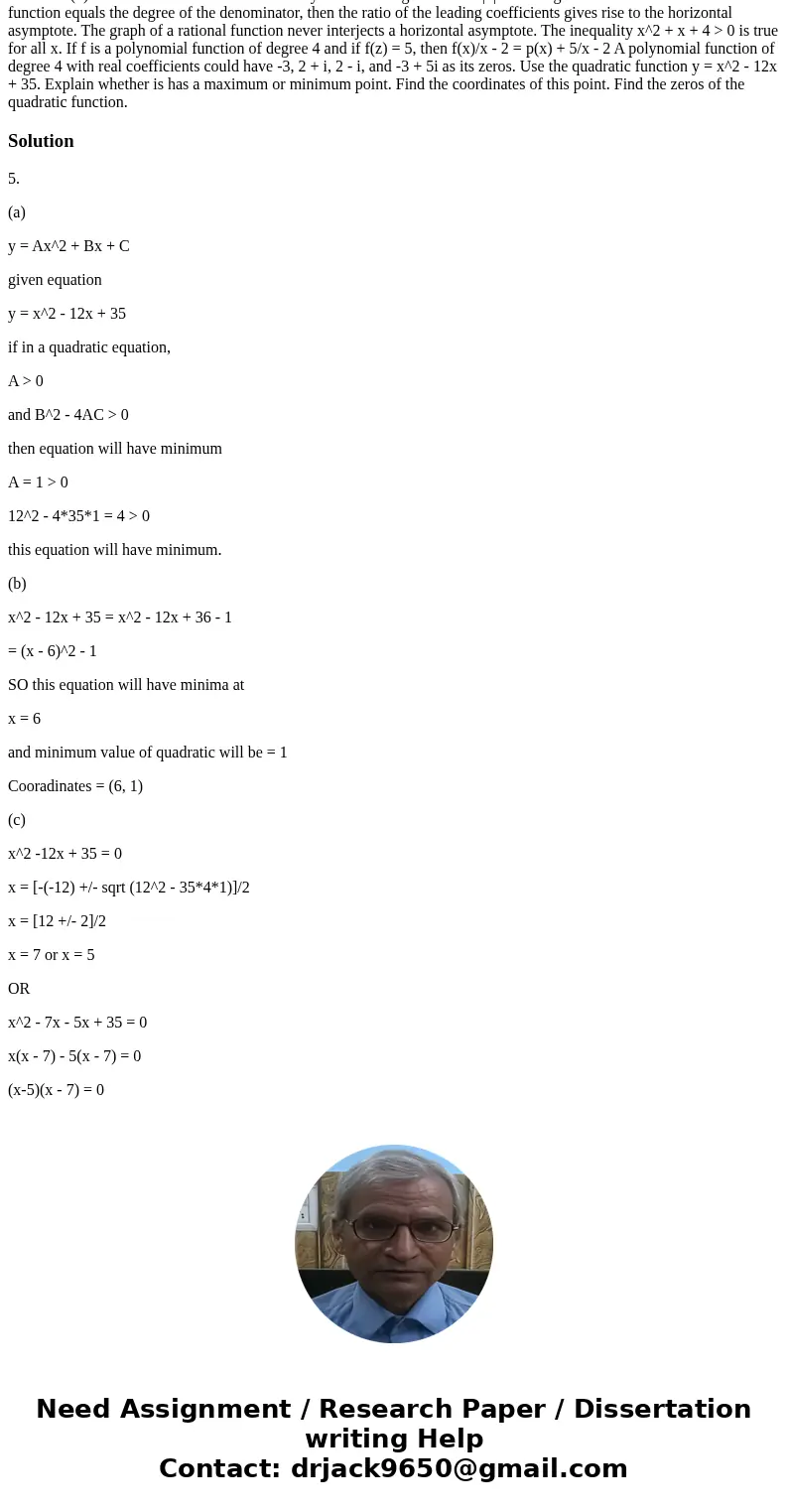If the discriminant b 4ac is equal to zero the graph of the
If the discriminant, b^- 4ac, is equal to zero, the graph of the quadratic function f(x) = ax^2 + bx + c has no x-intercepts. A power function of degree n is a function of the form f(x) = ax^n, where n is an integer. End behavior, the graph of the function f(x) = 3x^4 - 6x^2 + 2x + 5 resembles y = x^4 for large values of |x| If the degree of the numerator in a rational function equals the degree of the denominator, then the ratio of the leading coefficients gives rise to the horizontal asymptote. The graph of a rational function never interjects a horizontal asymptote. The inequality x^2 + x + 4 > 0 is true for all x. If f is a polynomial function of degree 4 and if f(z) = 5, then f(x)/x - 2 = p(x) + 5/x - 2 A polynomial function of degree 4 with real coefficients could have -3, 2 + i, 2 - i, and -3 + 5i as its zeros. Use the quadratic function y = x^2 - 12x + 35. Explain whether is has a maximum or minimum point. Find the coordinates of this point. Find the zeros of the quadratic function.

Solution
5.
(a)
y = Ax^2 + Bx + C
given equation
y = x^2 - 12x + 35
if in a quadratic equation,
A > 0
and B^2 - 4AC > 0
then equation will have minimum
A = 1 > 0
12^2 - 4*35*1 = 4 > 0
this equation will have minimum.
(b)
x^2 - 12x + 35 = x^2 - 12x + 36 - 1
= (x - 6)^2 - 1
SO this equation will have minima at
x = 6
and minimum value of quadratic will be = 1
Cooradinates = (6, 1)
(c)
x^2 -12x + 35 = 0
x = [-(-12) +/- sqrt (12^2 - 35*4*1)]/2
x = [12 +/- 2]/2
x = 7 or x = 5
OR
x^2 - 7x - 5x + 35 = 0
x(x - 7) - 5(x - 7) = 0
(x-5)(x - 7) = 0


 Homework Sourse
Homework Sourse